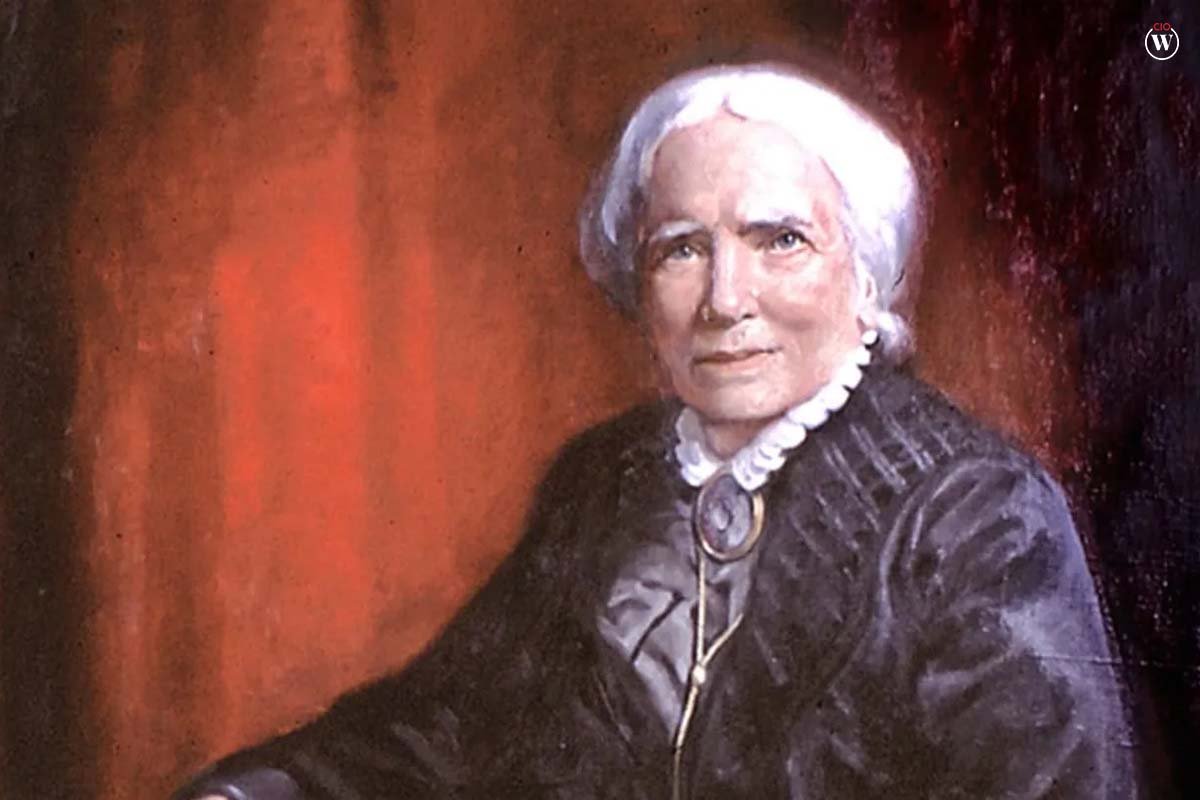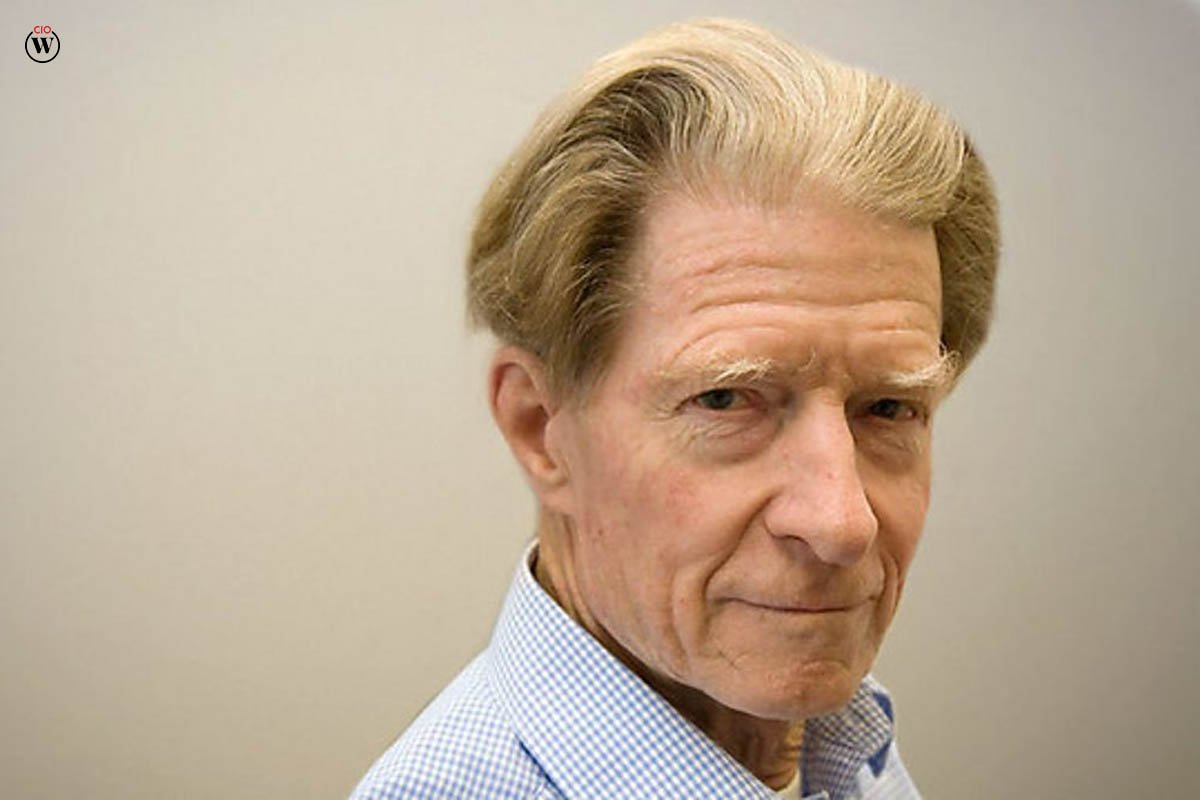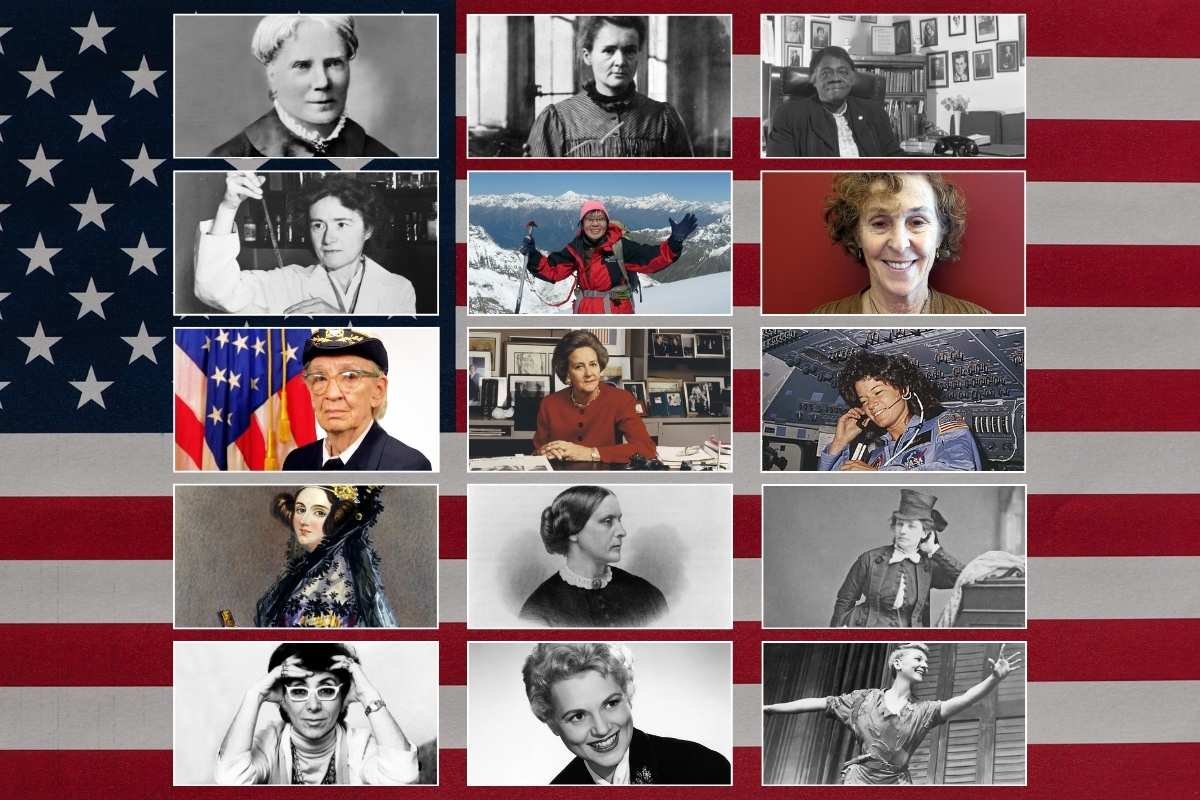Many human pursuits depend on leadership to succeed. Sports, education, the arts, journalism, law, the military, and medicine may all attribute their success to the kind of leadership supplied.
Throughout the last few decades, the medical profession has seen dramatic transformations, and many Leaders who contributed to Medicine. Growing dependence on molecular markers, the introduction of robotic surgery, health care reform legislation, and increased use of electronic medical records are just a few of the changes that have happened in our field.
Here are 20 Leaders who contributed to Medicine;
1. Metrodora (c. 200-400 AD)
On the Disorders and Cures of Women, written by Metrodora, a Greek female physician and Leaders who contributed to Medicine, is the earliest medical literature known to have been authored by a woman. Significantly, it omitted information on obstetrics, the study of childbirth, which was relatively uncommon at a period when women were limited to gynecology and midwifery.
Metodora, on the other hand, is believed to have covered all fields of women’s medicine, establishing different medicines and surgical methods that were novel at the time. Her work was significantly inspired by the Greek physician Hippocrates, and it has affected and been mentioned by many other medical authors throughout history.
2. Elizabeth Blackwell (1821-1910)
Elizabeth Blackwell is most recognized Leaders who contributed to Medicine in the United States as the first woman to receive a medical degree (MD). She grew up in a progressive, socially engaged home. Her father was a staunch opponent of slavery, and her siblings went on to struggle for women’s rights.

Despite being turned down by numerous institutions, Blackwell got admitted to Geneva Medical College in 1847. She was first met with animosity by her classmates, but she ultimately earned their respect and graduated first in her class in 1849. Together with her sister, Dr Emily Blackwell (the third woman to receive an MD), and Dr. Marie Zakrzewska, she founded the New York Infirmary for Women and Children in 1857.
Blackwell was a social awareness and moral reformer in both the United States and the United Kingdom, and she pushed education for women in medicine via her inspiring book Pioneer Work in Opening the Medical Profession to Women.
3. Louis Ignarro
These American Leaders who contributed to Medicine, pharmacologist, and medical researcher was born in Brooklyn, New York, the son of an unskilled carpenter. Ignarro received the Nobel Prize in Physiology or Medicine in 1998 for discovering the signaling characteristics of nitric oxide. Ignarro attended Columbia and the University of Minnesota before becoming a professor of pharmacology at UCLA.
His early research partnerships at the National Institutes of Health resulted in a better knowledge of the cardiovascular system among doctors. His findings have resulted in the creation of several drugs, including nutritional supplements that boost cardiovascular health and Viagra. He has published five significant papers on the consequences of his study into Nitric Oxide’s health qualities.
4. Marie Curie (1867-1934)
Marie Curie, a Polish mathematician, and physicist, Leaders who contributed to Medicine worked alongside her husband, Pierre, to discover two chemical elements in the periodic table: polonium and radium. This significant study discovered a link between radioactivity and the heavier elements of the periodic table, which led to significant advances in medicine. It was most notable for paving the way for the creation of the x-ray, which enabled internal imaging to be utilized for diagnosis without the need for open surgery, as well as radiation therapy for cancer treatment.
During WWI, Marie and her daughter Irene carried transportable X-Ray equipment and radiology units to the front lines, allowing for the treatment of over a million injured troops.
Curie received the Nobel Prize in Physics in 1903 and the Nobel Prize in Chemistry in 1911, making her the first and only woman to be honored twice. She started the Curie Institute in Paris in 1920, which is still a key cancer research institution today.
5. Gerty Cori (1896-1957)
Gerty Cori, another Nobel Prize recipient Leaders who contributed to Medicine, received the coveted prize in 1947 for her contribution in medicine/physiology. Cori was the first woman to receive a Nobel Prize in this field. She collaborated with her husband, Carl Ferdinand Cori, who shared her interest in preclinical research, to establish important genetic notions.
Their research led to the revelation that metabolic diseases might be caused by an enzyme shortage. They also conducted several investigations on the effect of hormones, with an emphasis on the pituitary gland. Between 1948 and 1955, Gerty received numerous more honors for her contributions to science and received honorary Doctor of Science degrees from Boston University, Smith College, Yale, Columbia, and Rochester.
6. Virginia Apgar (1909-1974)
Virginia Apgar Leaders who contributed to Medicine is most known for inventing the Apgar score, a key test that clinicians immediately embraced to determine if newborn newborns needed immediate medical treatment.

The Apgar score has significantly reduced infant death rates and is still used today to evaluate the clinical state of babies in their first few minutes of life. Apgar was the first woman to hold the position of full professor at Columbia University’s Faculty of Physicians and Surgeons.
7. Gertrude Belle Elion (1918-1999)
Gertrude “Trudy” Belle Ellion, an American chemist and Leaders who contributed to Medicine, earned a Nobel Prize with George H Hitchins and Sir James Black for pioneering techniques of rational drug design that focused on knowing the medicine’s target rather than just employing trial and error.
Elion, who comes from a scientific family, was motivated to study medicine after her grandpa died of cancer when she was 15 and became determined to finding a treatment for the illness. Utilizing her approach, Elion and her colleagues created 45 patents, including medications to treat leukemia, herpes, and AIDS, as well as therapies to minimize the body’s rejection of foreign tissue in kidney transplants between unrelated donors.
8. Gerald Edelman
Gerald Edelman, one of the Leaders who contributed to Medicine graduate of Ursinus College and the University of Pennsylvania School of Medicine, has made significant discoveries on the structure of antibodies. Edelman recognized that antibodies adapt to better fit our bodies’ demands as we age, and drew parallels between that evolution and the evolution of the human brain throughout life. Edelman is the founder and director of the non-profit organization “The Neurosciences Institute,” and he received a Nobel Prize for his antibody research.
9. Rosalind Franklin (1920-1958)
Rosalind Franklin, a British scientist and Leaders who contributed to Medicine is most recognized for her work in unraveling the complexity of DNA using x-ray images. Her discovery of the double helix has resulted in significant improvements in genetics and contemporary medicine. Franklin also spearheaded groundbreaking research on the molecular architecture of RNA viruses and Polio.
Franklin had a lifelong interest in science and intended to become a scientist when he was 15 years old. She overcame her father’s opposition to her pursuing further study and graduated from Cambridge University in 1941. She worked as a first-rate scientist for many years, and had it not been for her unexpected death from cancer in 1958, it is quite possible that she would have received Nobel Prizes in both 1962 and 1982 for work that she had a significant part in during her lifetime.
10. Rosalyn Yalow (1921-2011)
Rosalyn Yalow, an American medical physicist, Leaders who contributed to Medicine was awarded the Nobel Prize in Physiology/Medicine in 1977 for developing the radioimmunoassays (RIA) technology, which is used to quantify peptide hormones in the blood. Yalow’s approach was sufficiently accurate that it was used to screen blood donations for infectious illnesses including HIV and hepatitis.
This was critical in guaranteeing the safety and efficacy of life-saving blood transfusions. Subsequently, the procedure enabled scientists to demonstrate that type 2 diabetes is caused by the body’s inability to correctly utilise insulin.
11. Harold E. Varmus

Varmus, one of the world’s best cancer experts and Leaders who contributed to Medicine, was given the Nobel Prize in 1989 for his discovery of the cellular origins of retroviral oncogenes, which has been crucial in the battle against cancer. Varmus is one of three co-chairs of the President’s Council of Advisers on Science and Technology. He attended Amherst College, Harvard University, and Columbia University. He also serves on the Council on Foreign Relations and is the head of the National Cancer Institute.
12. Jack W. Szostak
This Canadian scholar attended McGill University and Cornell University. Szostak is currently a genetics professor at Harvard Medical School. Szostak and Elizabeth Blackburn shared the Nobel Prize in 2009 for their discovery of how telomeres preserve chromosomes. Szostak was also the recipient of the Lasker Award (2006), the Genetics Society of America Medal, and the Dr. A.H. Heineken Prize (2008).
His findings are not restricted to the one for which he received the Nobel Prize. He is also recognized for creating the world’s first artificial yeast chromosome, and he played a key role in the Human Genome Project’s success.
13. Tom Maniatis
This American cellular and molecular biology professor attended the University of Colorado, Vanderbilt, and has many honorary degrees. Maniatis is a biotech pioneer who has worked with some of the world’s leading biotech businesses, including co-founding the Genetics Institute. He and Donald D. Brown received the Lasker-Koshland Exceptional Achievement Award in Medical Science for their various discoveries that have enhanced the area of biomedical research.
14. Torsten Wiesel
This Swedish medical researcher received the Nobel Prize in 1981 for his findings into the visual system’s information processing. His insights on sensory processing advanced the medical sector and our knowledge of the human body by leaps and bounds. Torsten Weisel attended the Karolinska Institute, a medical school in Stockholm.
His breakthroughs paved the way for the treatment of infantile cataracts and Strabismus. Wiesel was also given the National Medal of Science in 2005, as well as the Order of the Rising Sun, Grand Cordon, one of Japan’s highest decorations.
15. Elizabeth Blackburn
This Australian microbiology and immunology researcher co-discovered an enzyme that protects chromosomes, and the knowledge gained from her research has given medical researchers a better understanding of aging. It was discovered that humans age as the protective substance deteriorates and that certain circumstances cause the substance to deteriorate more quickly. She was awarded the Nobel Prize for her discovery.
16. Sir Roy Calne
This Leaders who contributed to Medicine is a doctor who pioneered organ transplantation, performing the first liver transplant in Europe in the 1960s, the first liver, heart, and lungs transplant in the 1980s, the first intestinal transplant in England in the 1990s, and the first combined transplant of stomach, liver, kidneys, and pancreas in 1994. He received the Lasker Award in 2012 for pioneering transplant medical procedures that have saved thousands of lives.
17. Tu Youyou
This Chinese medical scientist and pharmaceutical chemist received the Lasker Award in 2011 for her discoveries of artemisinin and dihydroartemisinin, which are used to treat malaria. It is estimated that her discoveries have saved millions of lives. You attended Beijing Medical College. She has no postgraduate degree and is not a member of any of the prestigious Chinese academies.
18. Sir John B. Gurdon

Gurdon is a developmental biologist who pioneered research in cloning and nuclear transplantation. In 2009, This Leaders who contributed to Medicine received a Lasker Award, and in 2012, he and Shinya Yaminaka were awarded the Nobel Prize in Physiology or Medicine for discovering that mature cells can be converted into stem cells. Gurdon studied at Christ Church, Oxford, and has worked for Cambridge and the California Institute of Technology.
19. Patricia Goldman-Rakic (1937-2003)
Patricia Goldman-Rakic is a neuroscientist known for her studies of the brain, particularly the frontal lobes and how they relate to memory. She received her bachelor’s degree in Neurology from Vassar in 1959 and her doctorate in Developmental Psychology from the University of California in 1963. Her multidisciplinary research significantly contributed to the understanding of neurological diseases such as dementia, Alzheimer’s, and Parkinson’s, and her study of dopa (ADHD).
20. Francoise Barré-Sinoussi (born 1947)
One of the Leaders who contributed to Medicine, Francoise Barré-Sinoussi, a Parisian scientist, is celebrated for her discovery of HIV as the cause of the immunodeficiency disease, AIDS. In 2008, Barré and Luc Montaigner discovered that the HIV retrovirus attacked lymphocytes, a blood cell that plays an important role in the body’s immune system. Her vital work has helped millions of HIV-positive people live long, healthy lives, and could pave the way for a cure in the near future.
Also read: Susan Gatehouse – Authentic Leadership









